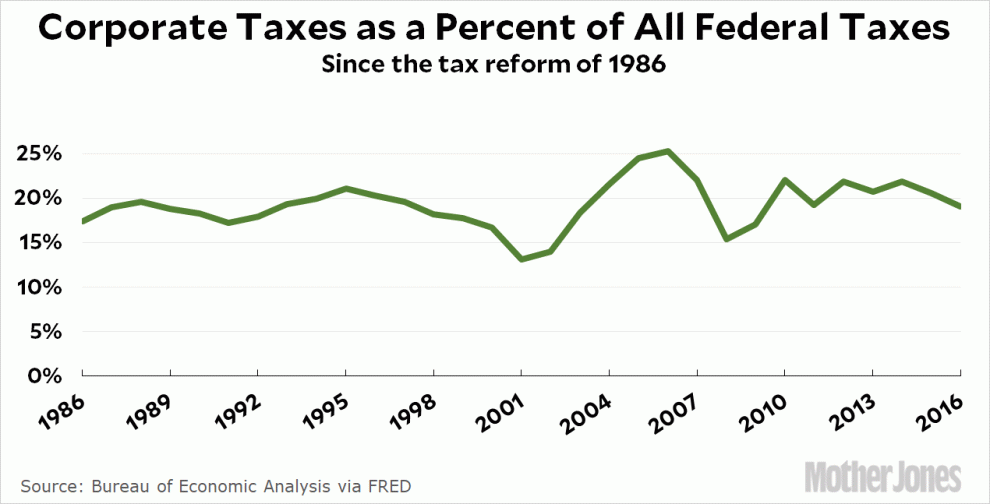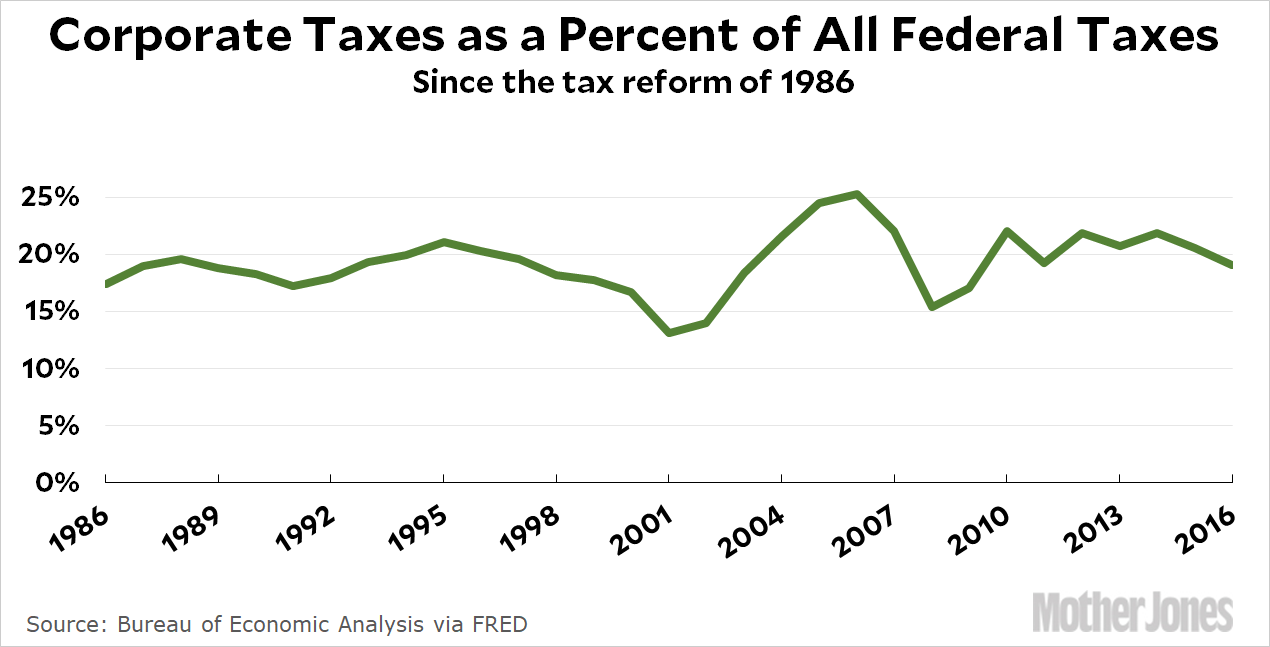
Kevin Hassett, currently CEA chair in the Trump administration, claims that a corporate tax cut would raise wages by $4,000. Laura Tyson, CEA chair during the Clinton administration and economic advisor to the Obama administration, says that Hassett’s claim is “disturbing” and “dishonest.” If you look at all the evidence, not just a few cherry-picked outliers, the most likely effect on wages is…zero.
This should surprise no one. Hassett’s claim is ridiculous on its face. Nevertheless, Tyson supports the idea of cutting corporate taxes:
My general view is a corporate rate tax cut with move to territoriality would increase investment in the United States. A lot of economists believe that….The original proposal from several years ago was for a revenue-neutral corporate tax cut. So a tax cut for corporations paid for by going after all the special deductions and special credits to broaden the base enough to generate revenue. The general view of that was that would eliminate distortions in the corporate tax code. There are wild differences in tax rates for retail, energy companies, etc.
Roger that. A lot of people support tax reform like this—at least in theory. It’s getting them to support it in practice that’s hard.
Here, however, I’m going to reveal my vast ignorance about corporate taxation. I basically think of taxes as just another input, like the cost of steel or transportation. What happens when those costs fall? In a normal market, competition forces companies to lower the prices of their goods until they are once again operating at the same level of profit as before. Lower prices produce higher sales, which in turn requires more workers.
So yes: lower corporate taxes should have a modestly beneficial effect on employment. In a tight labor market, this will even lead to temporarily higher wages until a recession comes along to loosen up the labor market.

But why should lower corporate taxes benefit capital? If, say, the widget industry operates on an expected return to capital of 10 percent, competition will keep it there even if taxes or other costs go down—but only as long as they go down for everybody. Thus, corporations should be eager for tax loopholes that benefit them exclusively, since that really does produce extra profits that can be put in the hands of shareholders and executives, but they shouldn’t care very much about overall tax rates that affect their entire industry equally.
In other words, overall tax rates don’t matter much. It’s the loopholes and special subsidies that produce unjustified rents based on disparate tax levels. And sure enough, that’s what corporate lobbyists spend most of their time on. Getting rid of all this crap in the tax code is therefore a great idea, but the problem is that it will all just accrete again even if we manage to do it. The only way to get rid of it permanently is to eliminate the corporate income tax altogether.
The overall effect of eliminating corporate taxes should thus be (a) higher employment and (b) fewer opportunities for non-market profits that benefit the rich. What’s not to like?
Is this correct? If not, what’s wrong with it? Am I assuming that competition is too perfect? Or what?
In any case, if this is close to right, it’s why I’ve long thought I’d support doing away with the corporate income tax entirely and swapping it for a carbon tax. We’d stop taxing stuff we like (corporate output) and instead start taxing stuff we don’t (carbon output). In the jargon of business, it’s a win-win.















